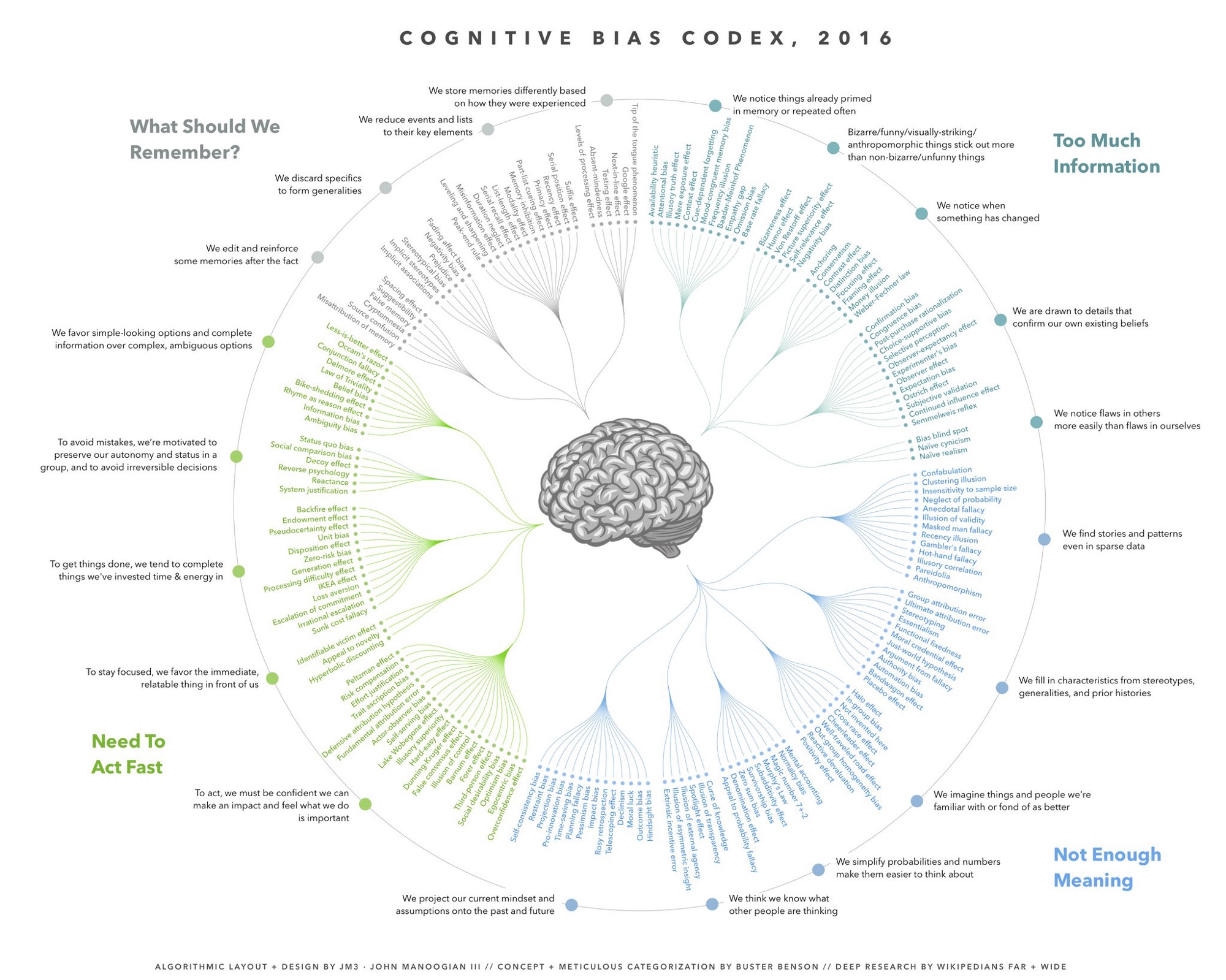How to learn better
Notes about learning.
Information overflow#
“Time is more precious than money. Money is a renewable resource. Everyone always has the potential to make more money. Time, on the other hand, is finite. There are only so many hours in a day. By definition, you only have so much time to give.”
Choose your sources#
Focus on relevant topics and find what are reliable sources of information. Filter out things that don’t matter at the moment. Learn more details later, when needed.
Cognitive bias#
Cognitive Bias Codex (created by John Manoogian III) shows overview of different biases that humans have. Most are caused by lack of information or lack of time to process it. Cognitive bias cheat sheet shows overview about each of them.

Future of work is to learn#
“Post-industrial work is learning” says Esko Kilpi in the article The design patterns of work. Learning starts from questions. What you ask matters. When you take time to understand context first, you don’t waste time from others.
Share what you learn#
“The collective intelligence of our societies depends on the tools that augment human intelligence.”
Writing and drawing are just some of the ways to share that knowledge. It is also known that people learn more when they take notes. Still it does not make that much of sense to write down everything.
An article tells that “students who write out their notes on paper learn more”. That is when compared to students who used laptops for writing notes. Difference is partly explained by the speed. Most write slower with paper, and that requires to more focus on content. Ability to listen and combine data to more understandable forms is the key for learning.
Lack of thinking means lack of effective learning. You need to think in your own words to understand and digest topics. Digital tools make it easy to copy, but avoid unneeded copying. Amount of content does not mean much if you can’t do anything meaningful with it.
Snippets have low value#
For too many years, I spent countless hours on Twitter. Writing and sharing short snippets of information. Problem with ‘micro-blogging’ is that limits of space make it difficult to include context about what content is about. Without pre-existing knowledge about topic, most short snippets have low value for most.
Benefits of sharing the learning process#
Value of your time goes up when you share what you have learned.
Question is, what to make of it? How to improve our communication skills, without flooding others with unneeded details? Share details with care. Reduce need to interrupt others. Make sure to share relevant knowledge.
Learn before teaching#
Focus on teaching yourself, not others. If you can learn, others could too. Write down your learning path. Allow others to learn by reading your notes.
People learn in different ways. It also takes energy to learn new things. Most people are often too busy or too tired to learn. Motivation is also relevant. If you can’t give yourself any reason to learn, learning will not happen.
Time is the key#
Key thing is to balance time requirements with other priorities of life. Lack of time is a constant thing. It takes time to learn. Often people are willing to spend time, but are not willing to pay money for saving it. At the same time, smarter way for others is to pay for saved time. But how to know if you should spend your limited time or not?
Ask questions to learn#
“Next time you hear something, or someone, talk about an idea, pitch an idea, or suggest an idea, give it 5 minutes.”
Learn to think first, avoid reacting too fast. The right idea could start out life as the wrong idea.
And remember, you don’t have to be perfect. Nobody is.